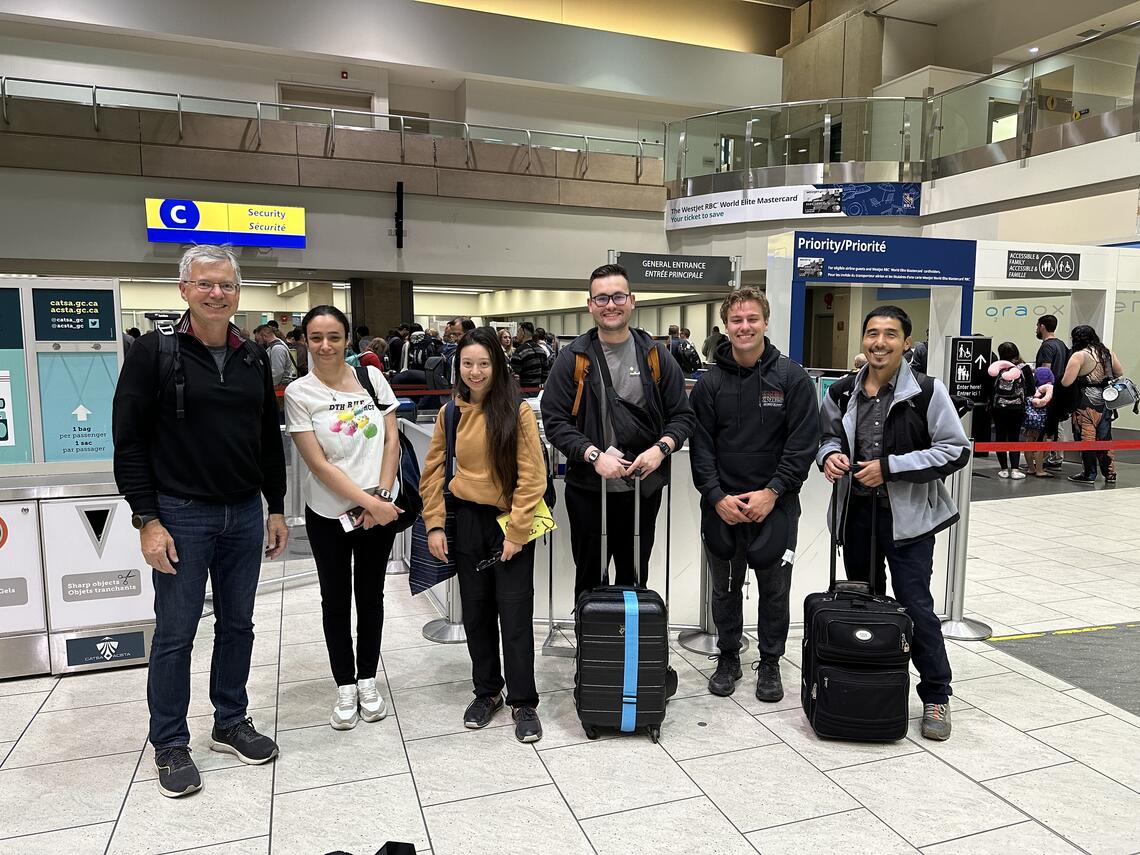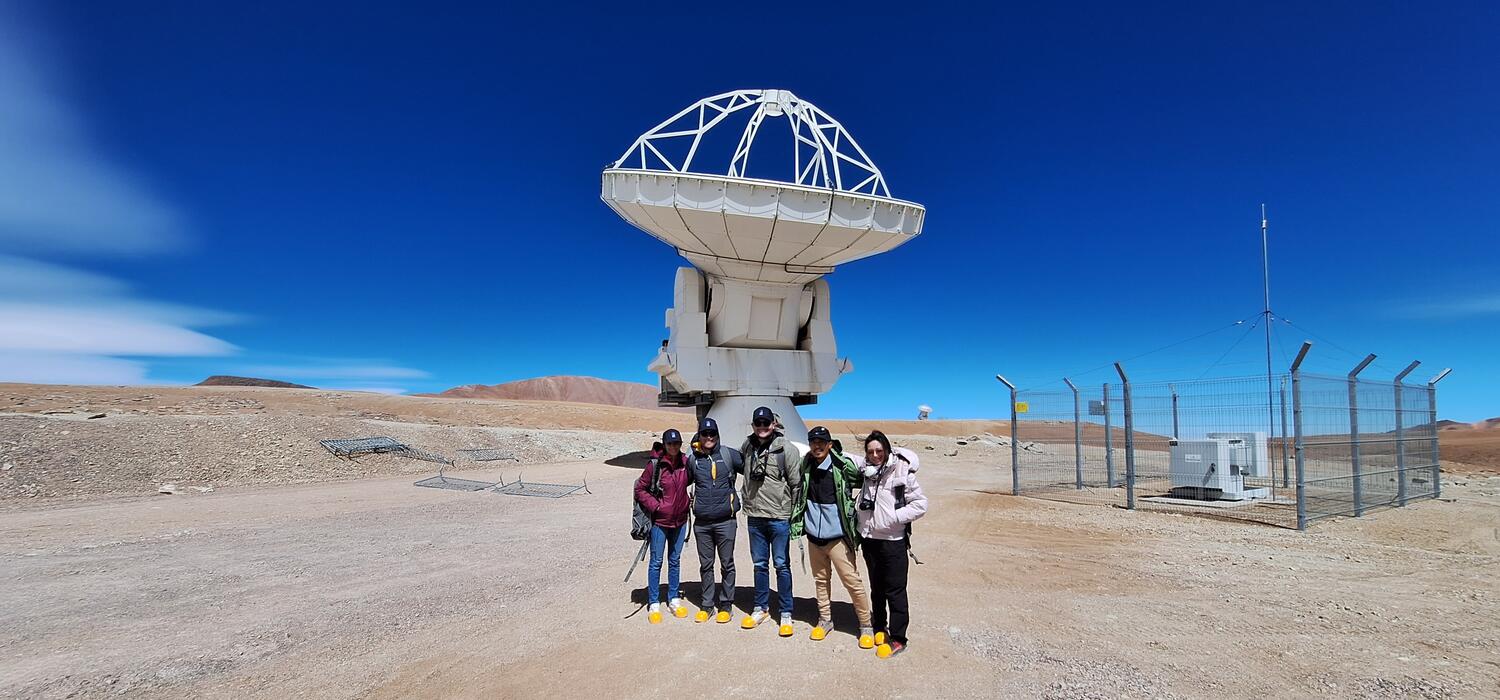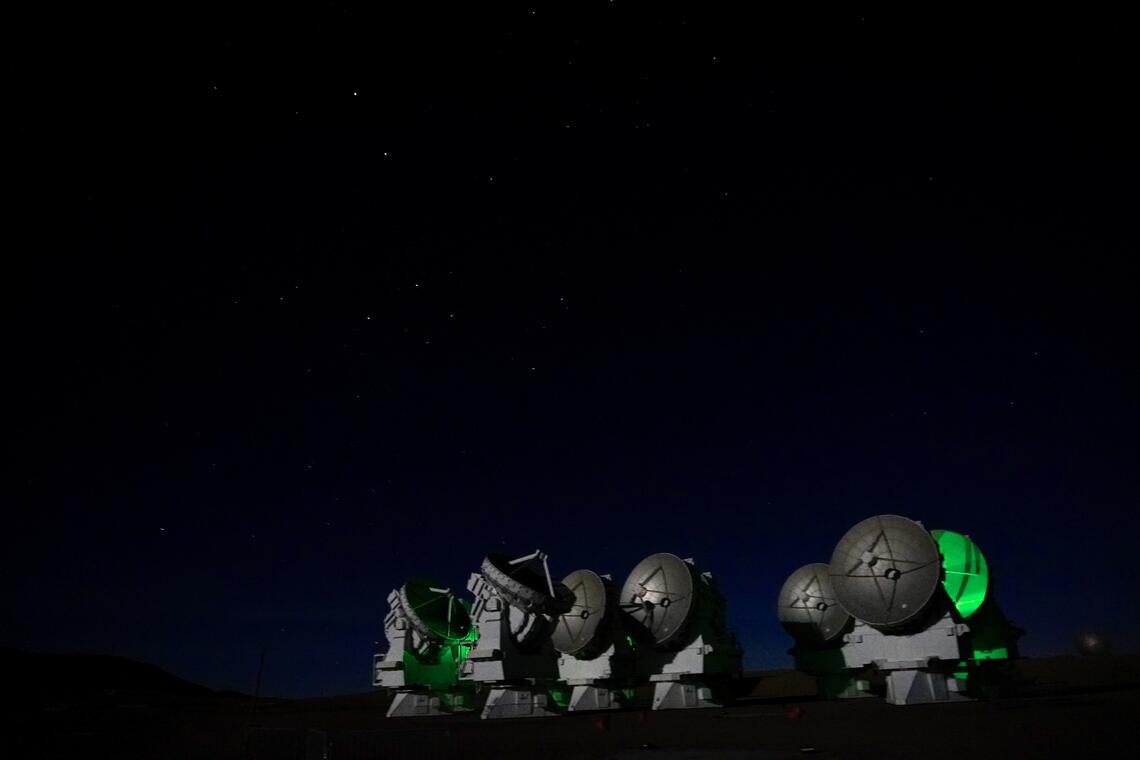
Marc Poulin, Farzaneh Rami, Alison Donald, Connor Snow, Shane Magnison-Benoit and Matiram Pun.
The student researchers
Oct. 13, 2023

Five UCalgary student-researchers recently travelled more than 10,000 kilometres from home, risking altitude sickness and a good night’s sleep — all in the name of science and finding out how exposure to very high altitudes can impact one’s health while simply catching a nap.
“As you go up in altitude, you increase your breathing because there’s less oxygen getting pulled into your blood, so you become hypoxic. You want to breathe more, so your breathing frequency goes up,” explains researcher Connor Snow, BSc’21.
“As a result of that hyperventilation, you’re blowing off a lot of your carbon dioxide (CO2). During sleep, you need CO2 to trigger breathing. But what happens is, because you’re blowing off all that CO2 through hyperventilation, you’re going to stop breathing periodically for five to 15 seconds or more, essentially.”

Marc Poulin, Farzaneh Rami, Alison Donald, Connor Snow, Shane Magnison-Benoit and Matiram Pun.
The student researchers
Snow and the other neuroscience PhD students journeyed to the northern region of Chile in August and early September where they studied the impact of altitude on sleep. They mostly stayed at the operative support facility serving the ALMA observatory, located in the Atacama Desert at 2,900 metres above sea level (ASL). The facility often houses national and international scientists and staff members of the Atacama Large Millimeter/submillimeter Array (ALMA).
The students then travelled to an even higher part of the ALMA site where the telescopes sit at 5,000 m ASL, spending several hours simulating the extreme exposure experienced by high-altitude workers. Although the location doesn’t normally accommodate overnight guests, the group was allowed to set up cots in a small building as part of this novel scientific study.
Working under Dr. Marc Poulin, PhD, DPhil, professor at the Cumming School of Medicine, the experience, though valuable, was physically and mentally challenging for the students.
“It was very difficult,” Shane Magnison-Benoit, BSc’22, recalls. “It’s hard to even explain how it felt at 5,000 m. During the night, you could not sleep; it felt like there was a lack of breathing. When we look back on the data, it looks like we got five to six hours of sleep, but, in the moment, just because you are awakening over and again, it felt like you were awake the entire night.”
Snow says all the students experienced altitude sickness (also known as acute mountain sickness) after their overnight stay at 5,000 m, with some even descending early.
The team ran a series of tests when not trying to catch some shut-eye. “We took our polysomnographic sleep measurements nightly, which is the gold standard,” says Matiram Pun, MSc’13, of the recording of brain activity, oxygen levels in blood, heart rate, movement and breathing.
“We did a cognitive function test at all the stations and made clinical measurements such as blood pressure (and) oxygen saturation and continuously monitored ourselves at those various altitudes.”

The ALMA telescopes.
The student researchers
Back in Santiago after their high-altitude sojourn, they met with the director of the ALMA observatory, trade commissioners from the Canadian Embassy, and representatives from industry and the Chilean Ministry of Health. The team shared their experience and undertook brainstorming for the future collaborative scientific research to help inform policy development for people who work at high altitudes.
Having now returned to Calgary, with access to beds at a more comfortable altitude — only 1,100 m ASL — the team continues to raise awareness of how important sleep is to good health, no matter where you lay your head down.
The trip was supported as part of the training mobility component of BRAIN CREATE, a program run out of the Hotchkiss Brain Institute and a part of the CREATE program under the Natural Sciences and Engineering Research Council of Canada.
The team, which also includes students Farzaneh Rami and Alison Donald, hopes to continue their research within Chile and include more people for a larger and more robust sample size.
Related research could also take place a little closer to home using the same methods to potentially measure how northern workers and their circadian rhythms (which govern the body’s internal clock) are affected by the long stretches of darkness during winter.
The team also stresses the importance of seeing a physician if you are struggling with sleep, regardless of altitude.
The NSERC CREATE program, BRAIN CREATE, is an interdisciplinary training program with the goal of preparing the next generation of neuroscientists for careers in industry, and helping accelerate the development of new neurotechnologies, some of which are tested in extreme environments. As part of the program, trainees have the opportunity to partake in a capstone “Living Laboratory” research project in geographical and environmental extremes such as the Atacama Large Millimeter/submillimeter Array (ALMA) Observatory, which is located at extreme altitude in the Atacama Desert in Northern Chile. Learn more about the Brain Create program.
The Hotchkiss Brain Institute (HBI) consists of more than 300 scientists and clinician-scientists who are dedicated to advancing brain and mental health research and education. The institute leads the Brain and Mental Health research strategy at the University of Calgary, toward a better understanding of the brain and nervous system and new treatments for neurological and mental health disorders, aimed at improving quality of life and patient care. Learn more about the HBI.
Marc Poulin is a professor in the Departments of Physiology and Pharmacology and Clinical Neurosciences at the Cumming School of Medicine (CSM), and holds a joint appointment in the Faculty of Kinesiology. He is a member of the O’Brien Institute for Public Health, Hotchkiss Brain Institute, and Libin Cardiovascular Institute at the CSM and holds the Brenda Strafford Foundation Chair in Alzheimer Research. He is also co-director of the NSERC BRAIN CREATE program.